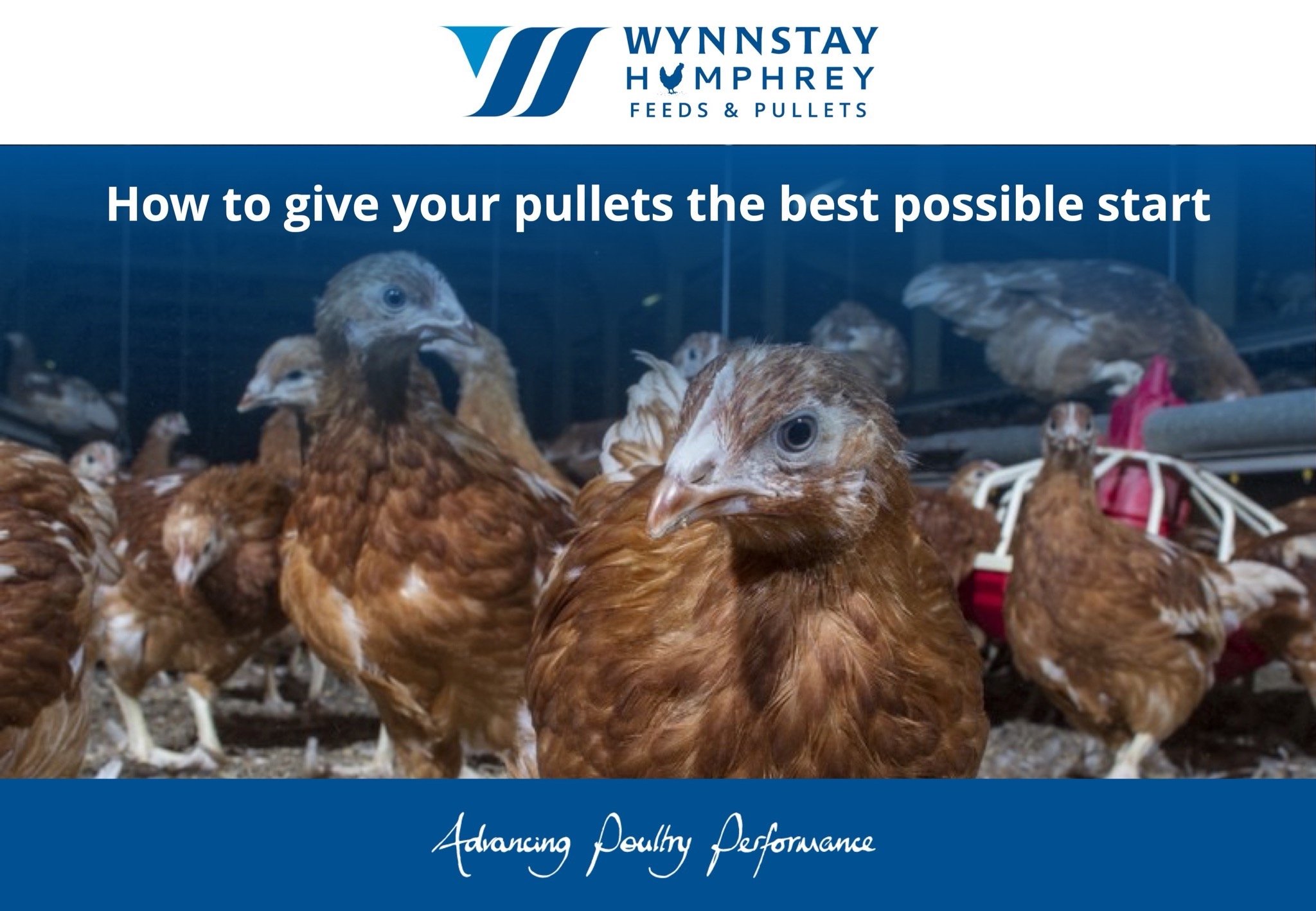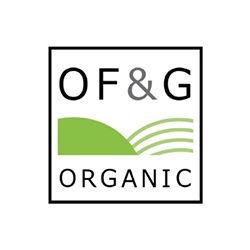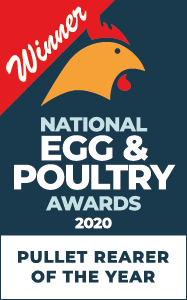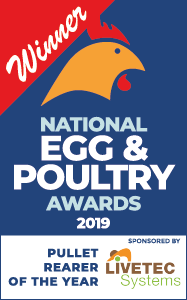In part three of our series, Flock Focus, we re-join Fred Powell and his family with their first flock in Mid Wales. Our last visit to Fred’s farm saw egg production underway, with 32,000 pullets reared by Humphrey Feed & Pullets in his new multi-tier Big Dutchman shed. The birds are now 51 weeks of age, and production is excellent.
“Generally, the birds got up to consistent production and egg size has been controlled well. Since we last spoke, the flock peaked and maintained egg production at 97%. We are currently at 94%, so a bit lower as the birds are getting older, but still at a good level,” says Will, Fred’s oldest son.
“Aged 51 weeks, we have seen 29 weeks at over 90% production. With this flock we could potentially achieve 35-40 weeks at over 90%”.
Feather loss
“Until now, we’ve seen very little feather loss as the birds have been very calm,” explains Will. “In the last 10 days, with the nights starting to draw in they’ve been in the shed a bit more.” With October weather setting in, the birds are experiencing their first cold and wet weather. While outside, the birds have remained calm – the side of the hill offers good wind protection, even if the ranging area is wet. “There’s been a few more floor eggs and more dust on the floor,” says Will, “but we didn’t want to clear out the shed and stress the birds. I’d rather have a bit more work with floor eggs but higher welfare standards. We’ve put extra toys down indoors and regular checks to prevent any further feather loss.”
Advanced production
All members of the family are still getting used to the robotic automatic packing, but are quick to say the shed has generally been excellent, with the only hiccup being a muck belt that needed refitting.
Free Range has proven to be a good investment,” says Will. The birds are housed in a large 130 metre, Big Dutchman multi-tier system. “Any issues we’ve had so far are not a result of the shed at all, and we’re very happy with our purchase.” The included Big Dutchman app allows ‘fingertip control’ of many influencing factors in bird welfare and egg production, including adjusted lighting and heating. However, although the system is undeniably effective and convenient, Will prefers to be more hands-on with his monitoring:
“The technology is undeniably advanced and impressive. However, I prefer to be on the floor to see how the birds are affected. As much of this is still new, we can learn as we go and see the effects of adjustments in real-time.”
Despite the odd setback, production has been steady, meeting Oaklands eggs 2% cracked egg tolerance, with 45% of eggs size medium/large. Gwenda Wozencraft, Humphrey Feed and Pullet’s technical advisor for Wales, drops by every two weeks to inspect and advise, and is on call for any questions the Powell family might have. Will looks to advice from Humphrey as his trusted source, and doesn’t look anywhere else.
Effective management
The work is varied, but even with the occasional hindrance, the entire family are able to rotate work and make changes as and when it’s required. “There is a sense of everyone in the family pitching in where they’re needed,” explains Will, “and any day-to-day adjustments are only made when agreed by myself and Gwenda. I’ll admit I’ve often left mum and dad to handle the work on Sunday mornings though!”
There has not yet been a case of avian influenza on a UK free range poultry farm, and careful preventative measures are in place against disease. Disinfectants and foot dips are used, and fresh protective clothing is used on every visit, before being safely destroyed.
Will is very happy with results so far, and is keen to share the exciting possibilities with young farmers. “I’m a young farmer, but didn’t know much about poultry, ”says Will. “It’s a really exciting and different environment to work in. Unlike having to wait for annual effects with sheep and beef, you can observe almost overnight results with poultry. It’s more fast-paced, and experimental. I would definitely encourage all young farmers to look into it.”
Gwenda notes “The Powell’s have done well in their first year of production. Of course, there is a honeymoon period with any new set up, but that takes nothing away from their achievements.”
The results remain excellent, but the family are under no illusions: “It’s been a great deal of hard work, and I’m proud of what we’ve accomplished,” says Will, “but we can never rest on our laurels. There’s always more to be done. If we want consistently achieve exceptional results, we have to maintain an exceptional work ethic and mindset of constant learning.

















